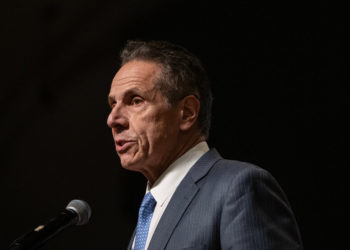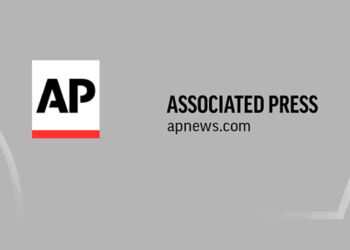The world will look to Seoul next week as leaders gather for a major economic summit and President Trump and President Xi Jinping of China are expected to meet for the first time since 2019. Both leaders hope the meeting will stabilize the superpowers’ rocky relations. But even a détente in the U.S.-China trade war will not restore faith in America’s economic leadership. By continuing to wield sky-high tariffs punitively, unilaterally and unpredictably, Mr. Trump has upended the rules-based international economic order that America led for 80 years.
The tariff campaign is but one prong of Mr. Trump’s assault on the laws and institutions Washington designed to advance its own power and privilege after World War II. The world is now grappling with what it means for the reigning global leader to renounce the very system designed to sustain its rule. Without a plan for what comes next and no natural successor, the United States is not only hastening its own decline but also forcing the world into a new era of disorder.
Throughout modern history, wars have wrecked global systems, with new structures emerging afterward. Following World War II, America and its allies designed an approach to govern the relations among nations in hopes of restoring prosperity to a devastated globe and preventing future conflict. The United Nations stood as the primary governing body, while other rules and institutions, such as the World Trade Organization, were built alongside it over time. At the apex of its power and the only Allied country to have avoided the destruction of total war, the United States became the leader and operator of this new world order.
The post-World War II system was successful precisely because it delivered for America’s partners, too. Political, economic and security cooperation created stability, predictability and political and economic gains for many nations. Washington accepted restraints on its power because it recognized that securing other countries’ buy-in was a more effective strategy for advancing its global aims than coercion. While this global order was undoubtedly imperfect and in many ways outmoded, it still gave Washington the advantage when Mr. Trump took office for a second term in January.
Now the Trump administration is on a campaign of systemic incineration. “The postwar global order is not just obsolete; it is now a weapon being used against us,” Marco Rubio said during his January secretary of state confirmation hearing. Rather than free and open trade, the administration has enacted crippling tariffs, punishing not just violators of trade rules like China but also American allies and American consumers with the higher prices that come from tariffs.
Rather than upholding sovereignty and the principle of nonaggression, Mr. Trump is threatening military action against Venezuela, yet took no concrete action when Russia violated NATO airspace. Mr. Trump has courted autocratic leaders like Vladimir Putin of Russia, Mr. Xi and Kim Jong Un of North Korea while suggesting Washington might not defend its democratic allies.
It is a stunning act of superpower suicide: Never before has the world’s reigning superpower intentionally dismantled a system designed to sustain its own leadership, particularly while those trappings were returning enormous benefits.
This era will not end in one convulsion — the kind of Big Bang event that has historically birthed new world orders. Instead, the next several years will almost certainly be a chaotic interregnum whose contours are coming into focus. The United States will remain immensely powerful, even if capricious and performative. The old institutions will no doubt endure: The U.N. will still convene and judges will review cases at the World Trade Organization, but with diminished capacity to overcome member nations’ natural tendency toward competition and conflict. Shared challenges, from pandemics to climate change to artificial intelligence, may go largely unaddressed.
A more disorderly world will almost certainly be a more violent one. This has already been a bloody year, including armed conflicts in South and Southeast Asia and Israeli strikes in Qatar, Syria, Lebanon, Yemen and Iran, as well as wars in Sudan, Ukraine and Gaza. The Trump administration joined Israel in its war on Iran, and led its own strikes against the Houthis and in the Caribbean. Mr. Trump professes to want peace, but, apart from the recent Gaza cease-fire, appears more focused on lobbying for the Nobel Peace Prize than for the sustained execution that makes peace deals stick.
These clashes may extend to the economic sphere. Nationalism and mercantilism are supplanting the prevailing premium on free and open trade, with America leading the charge with the highest tariffs in a century. Economic disintegration will not only slow global growth, it will also pit countries against one another in a race to acquire resources, from critical minerals to advanced semiconductors.
The world will need a new ordering force. There are no signs that one will be forthcoming. As China gains ground, it is unequipped to take up the American mantle. Beijing seeks a world that is safe for autocracy, allowing it to entrench party control at home and spread its influence abroad without interference. But it does not have viable plans for how to reduce conflict, create financial stability or manage transnational threats like nuclear proliferation.
America’s democratic allies in Asia and Europe may yet pull together to preserve what they can of the liberal international order. Taken together, they match America’s weight in G.D.P. terms. But domestic resistance at home to growing defense budgets in an increasingly tough economic landscape may stymie their ambitions.
Years from now, an American president may have the opportunity to work alongside other global leaders to build a new international order and blunt China’s gains. They will face the closest thing to a geopolitical clean slate that we have seen since 1945. A new vision could turn disorder into an opportunity for reinvention: by deepening technological, economic and security cooperation with select American allies; seeding innovative approaches to economic development; or building institutions to include leading companies alongside countries. Political aspirants preparing for that moment today must begin by recognizing there is no going back to the way things were.
Rebecca Lissner is a senior fellow for U.S. foreign policy at the Council on Foreign Relations. She was Vice President Kamala Harris’s principal deputy national security adviser and a deputy assistant to President Biden. Mira Rapp-Hooper is a partner at the Asia Group and a visiting senior fellow at the Brookings Institution. She was a special assistant to Mr. Biden and the senior director for East Asia and Oceania at the National Security Council. Ms. Lissner and Ms. Rapp-Hooper are the authors of “An Open World: How America Can Win the Contest for 21st Century Order.”
The Times is committed to publishing a diversity of letters to the editor. We’d like to hear what you think about this or any of our articles. Here are some tips. And here’s our email: [email protected].
Follow the New York Times Opinion section on Facebook, Instagram, TikTok, Bluesky, WhatsApp and Threads.
The post Donald Trump’s New World Disorder appeared first on New York Times.




